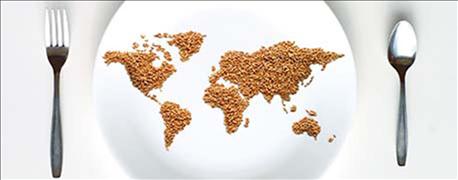
A report released today by the U.S. International Trade Commission says that the agriculture and food sectors of the economy would see the greatest percentage gain from the Trans-Pacific Partnership.
Related: TPP signed in New Zealand

International Trade Commission report says agriculture, food sectors have most to gain from Trans-Pacific Partnership Agreement. (Photo: Great Divide Photography/Thinkstock)
"Today's ITC report echoes what every major reputable study on TPP has now found, from the Petersen Institute to the American Farm Bureau Foundation, which is that TPP will provide strong benefits for the U.S. agriculture sector, with agricultural output set to be $10 billion higher per year by 2032 than it would without the agreement,” said Agriculture Secretary Tom Vilsack in a media statement. “Agricultural exports drive 20% of U.S. farm income and trade is critical not only to the continued growth of not only the sector, but to rural communities at large.”
Related: Ag coalition asks for action on TPP
Other findings
-The model used estimated the TPP would have a small overall positive impact on the U.S. economy. By 2032, U.S. real income would be $57.3 billion, .23% higher than baseline projections and real GDP would be $42.7 billion, .15% higher, and employment would be .07% higher, or 128,000 full-time equivalents.
-U.S. exports would be $27.2 billion, or 1% higher, and imports would be $48.9 billion, or 1.1% higher, compared to baseline projections, by 2032.
-The service sector would benefit with a gain of $42.3 billion in output.
-Output in manufacturing, natural resources and energy would be $10.8 billion, .1% lower with the TPP than it would be without the TPP.
-Many stakeholders consider two new electronic commerce provisions that protect cross-border data flows and prohibit data localization requirements to be crucial to the development of cross-border trade in services.
-TPP would generally establish trade-related disciplines that strengthen and harmonize regulations, increase certainty and decrease trade costs for firms that trade and invest in the TPP region.
Related: AFBF releases economic analysis of TPP
Market access
American Farm Bureau Federation president Zippy Duvall said AFBF members will continue to lobby for passage of the TPP.
“U.S. agriculture depends on agreements like TPP to break down trade barriers and level the playing field in markets around the world,” Duvall said. “Approving this deal would give U.S. agriculture greater access to some of the fastest-growing markets in the world at a time when we need market expansion like never before. We must expand to new customers overseas to keep our businesses alive and competitive. Every day we wait to approve TPP, we fall further behind our global competitors.”
Related: TPP in lame duck is uphill challenge
Trade deficit
National Farmers Union president Roger Johnson said it will continue asking members of Congress to consider opposing the TPP.
“These reports are often overstatedly positive, which is why it’s striking that the USITC’s optimistic results only project very modest economic gains for TPP,” he said in a media statement. “The commission’s assessment of a gain of just .15% in U.S. GDP in the next 16 years, while increasing our massive trade deficit should raise serious alarms about the proposed benefits of this trade agreement.
“TPP’s impact on agriculture and rural communities will perpetuate the same trends that have characterized the past 20 years of free trade agreements: greater consolidation; erosion of mid-sized farms; increased volatility in farm incomes; and depopulation of rural America,” he said.
In order for the TPP to take effect, it must be ratified by at least half of the 12 nations involved.
About the Author(s)
You May Also Like




